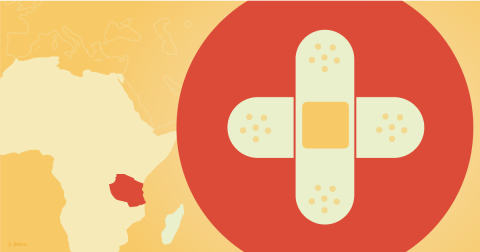
Traumatic injuries can have a devastating impact on patients and their loved ones. As one of the most significant causes of death and disability worldwide, injuries have become a global public health burden. According to the World Health Organization, approximately 5.8 million deaths occur annually from traumatic injuries, representing 10% of all global mortality. An additional 650 million people worldwide live with disabilities as a result of injury.

With new funding from the Fogarty International Center at the National Institutes of Health, Catherine Staton, MD, Assistant Professor of Surgery, Division of Emergency Medicine, and Janet Bettger, ScD, FAHA, Associate Professor of Surgery, Department of Orthopaedic Surgery, will work to improve outcomes in injury patients in Tanzania by taking a closer look at the risk factors that affect disability and mortality in these patients.
In collaboration with Kilimanjaro Christian Medical Centre (KCMC) in Moshi, Tanzania, the team aims to integrate strategies for care transitions into the healthcare setting at KCMC and to assess the feasibility of the intervention. By evaluating key factors involved in a patient’s recovery from injury, including function, mental health, pain, substance use and abuse, and comorbidities, such as HIV infections, the team believes incorporating these five areas into a comprehensive care delivery model will ultimately improve the health of injury patients at KCMC.

In Tanzania, where HIV is the leading cause of death and disability, standards of care do not include HIV testing or follow-up care for patients with traumatic injuries. Evidence suggests that patients with HIV experience worse outcomes following injury. However, the relationship between HIV and patient outcomes following traumatic injury remains unclear. As part of the study, the team will implement HIV testing in the management of patients with injury to determine rates of infection.
The team hopes the new care transition strategy will lead to improved care for injury patients at KCMC, while contributing to a better understanding of how HIV and other risk factors impact trauma patients in Tanzania and around the world.